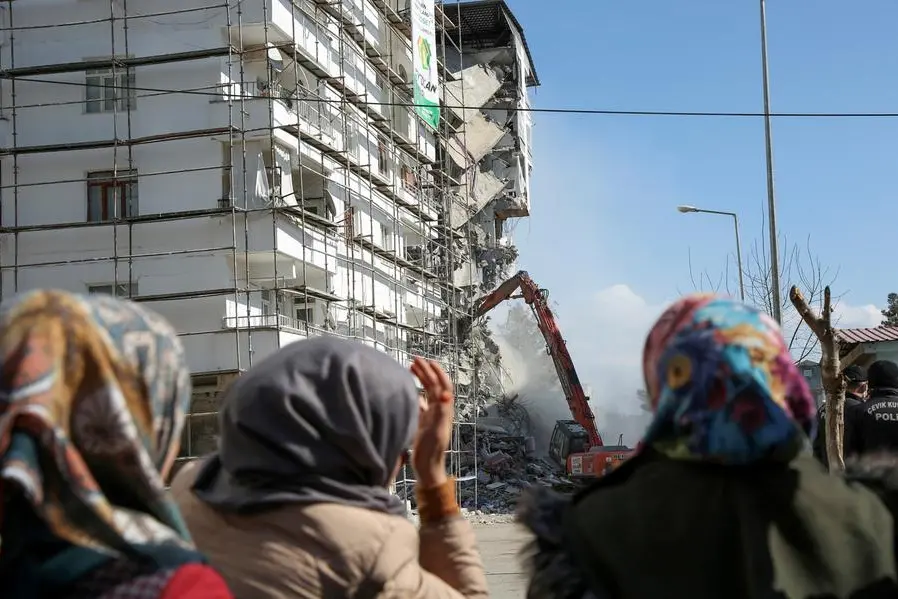PHOTO
ANTAKYA - Turkey has begun initial work to rebuild homes following this month's devastating earthquakes, a government official said on Friday, as a U.N. Development Program (UNDP) estimated 1.5 million people have been left homeless.
More than 160,000 buildings containing 520,000 apartments collapsed or were severely damaged in the Feb. 6 earthquakes that killed more than 43,500 people in Turkey and nearly 6,000 in neighbouring Syria.
Facing an election within months, President Tayyip Erdogan has pledged to rebuild homes within a year, although experts have said the authorities should put safety before speed. Some buildings that were meant to withstand tremors crumbled in the latest earthquakes.
"For several projects, tenders and contracts have been done. The process is moving very fast," the official said, speaking on condition of anonymity, adding there would be no compromise on safety.
The initial plan is to build 200,000 apartments and 70,000 village houses at a cost of at least $15 billion, he said. U.S. bank JPMorgan had estimated rebuilding houses and infrastructure will cost $25 billion.
Erdogan's government has endured a wave of criticism over both its response to the devastation and what many Turks say were years of non-enforcement of construction quality control.
The UNDP said it estimated that the destruction has left 1.5 million people homeless, with 500,000 new homes needed.
It said it had requested $113.5 million from the $1 billion in funds appealed for by the United Nations last week, adding that it would focus this money on clearing away mountains of rubble.
The UNDP estimates that the disaster had produced between 116 million and 210 million tons of rubble, compared with 13 million tons of rubble after the earthquake in northwest Turkey in 1999.
Turkey also issued new regulations under which companies and charities can build homes and workplaces to donate to the urbanisation ministry for people in need.
Many survivors have left the region of southern Turkey that was hit by the quake or have been settled in tents, container homes and other government-sponsored accommodation.
In Antakya, Saeed Sleiman Ertoglu, 56, loaded up what remained of his stock from his waterpipe shop that was not damaged.
"The glassware was very beautiful, more than usual, but then we had this (earthquake), and it all got ruined," he said, after his home and shop survived the first tremors but not the later one. He estimated that just 5% of his merchandise survived.
"What can we do?," he said. "This is an act of God, and God’s will always bears gifts."
(Additional reporting by Ezgi Erkoyun, Huseyin Hayatsever and Mehmet Dinar; Writing by Humeyra Pamuk and Mike Georgy, Editing by Edmund Blair, Daren Butler and Nick Macfie)





















